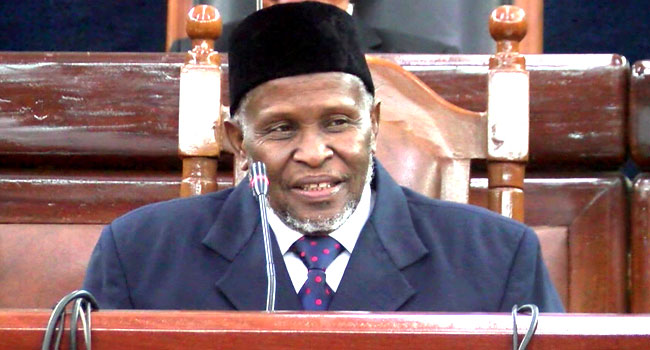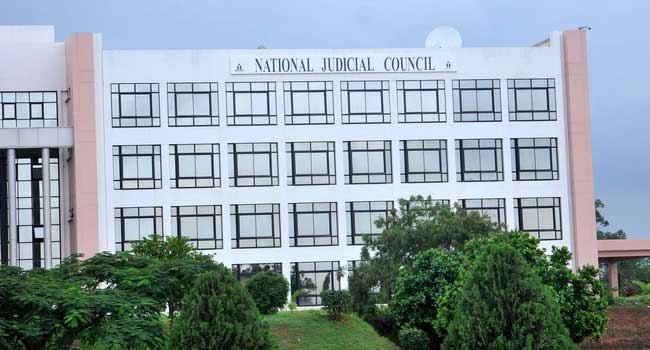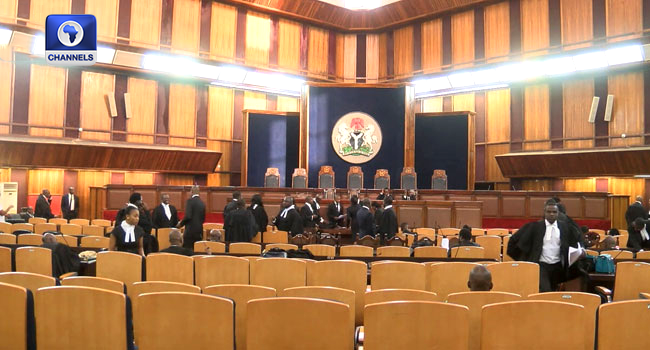
The Chief Justice of Nigeria (CJN), Justice Tanko Muhammad, on Monday failed to show up at the training of judges on Alternative Dispute Resolution.
Justice Muhammad’s absence at the training organised by the National Judicial Institute (NJI) comes amid reports that he had resigned from the highest judicial office in the land.
As the usual practice, the training sessions of judges by the institute are usually declared open by the CJN or any of his representatives.
While the CJN did not send any representative to the event, no justice of the Supreme Court was sighted at the training held in Abuja, the nation’s capital.
READ ALSO: Justice Tanko Muhammad Resigns As CJN
In the absence of Justice Muhammad and any of his representatives, the Administrator of the institute, Justice Salisu Garba, declared the session open.
Earlier, Channels Television reported that Justice Muhammad had resigned as the Chief Justice of Nigeria. Sources said he resigned on Sunday night, citing ill-health as the reason for his decision.
While arrangements are reported ongoing to swear in the next most senior justice of the Supreme Court, Justice Olukayode Ariwoola, as the acting Chief Justice of Nigeria, sources said a formal announcement would be made to that effect.
Until his resignation, according to reports, Justice Muhammad was seriously ill. News of his resignation broke barely a week after 14 justices of the Supreme Court wrote to him to lament the dilapidated state of affairs in the apex court.
In the leaked letter, the justices alleged that Justice Muhammad failed to address the issues raised despite drawing his attention to them.
They had complained of a lack of residential accommodation and vehicles at the court, alleging that the CJN was gallivanting with his ‘spouse, children and personal staff’ while not allowing them to travel with an assistant on foreign trips.
The justices also decried the lack of legal research assistants despite the magnitude of cases being adjudicated, in addition to being confined to work between the hours of 8am to 4pm daily without adequate power supply and lack of diesel to power generator.
All these allegations were, however, rebutted by an aide to the CJN.




